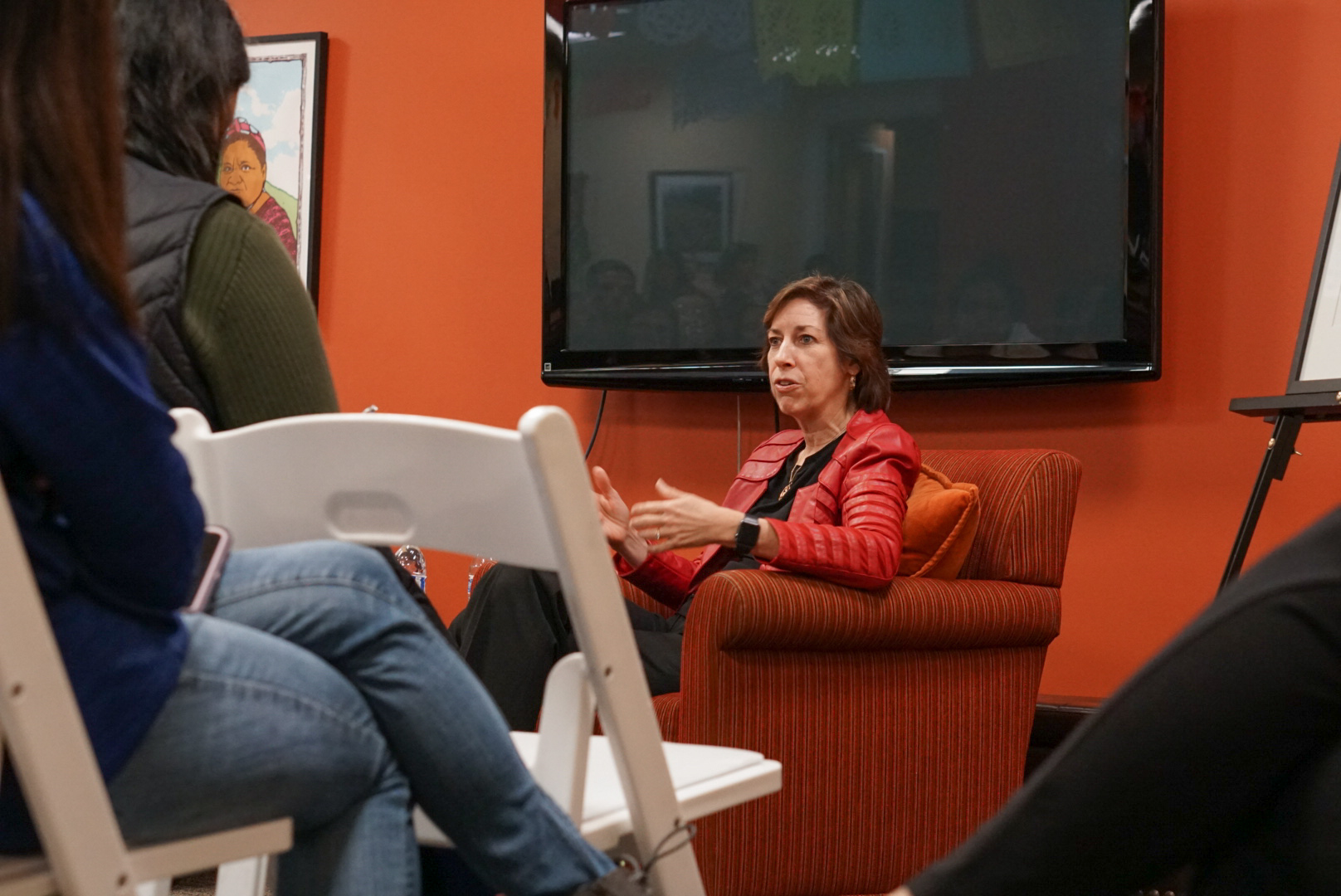On Tuesday afternoon, Ellen Ochoa M.S. ’81 Ph.D. ’85 — the first Latinx woman in space — spoke about the career path that led her to become an astronaut. During the talk, Ochoa asked her audience to think about how scientific research could factor into their own “system[s] of understanding the world.”
The event was hosted by El Centro Chicano y Latino as part of a WISE Inspirations Network program.
Ochoa, a 1998 Stanford Multicultural Hall of Fame inductee, made history in 1993 when she served a nine-day mission on the shuttle Discovery. She noted during her talk that Serena M. Auñón-Chancellor, the second Latinx woman in space, is currently in orbit.
Ochoa also spoke on the importance of diversity in the field broadly.
“When I was director of Johnson Space Center, we talked a lot about making sure that we got the best and the brightest minds,” Ochoa said. “I don’t know why anybody would think [those people] would all be white and male.”
Although she said she had few role models to look up to in technical fields, Ochoa expressed gratitude for professors and mentors who encouraged her to pursue a career in science or engineering, stressing the value of having had a support system of people who believed in her and pushed her to pursue her interests.
“When I went to college, I had no idea what I was going to do,” Ochoa said. “I ended up changing my major five times.”
A passion for mathematics ultimately led Ochoa to pursue a B.S. in Physics at San Diego State University. While an undergrad there, she began thinking of graduate school and eventually approached Stanford electrical engineering professor (now professor emeritus) Joseph Goodman M.S. ’60 Ph.D. ’63, who became her Ph.D. dissertation advisor at Stanford and later helped her land her first job at NASA’s Ames Research Center in 1988.
“I got interested in being an astronaut when I was here at Stanford,” Ochoa said.
She explained that she was particularly influenced by the story of Stanford alumna Sally Ride ’73, the first American woman in space, as well as by close relationships with various mentors at Stanford.
Ochoa discussed the value of perseverance and learning from one’s experiences. Despite not being selected the first time she interviewed to become a NASA astronaut, Ochoa did not regard the rejection as a failure, instead attributing the outcome to a lack of “experience in an operational environment.”
She noted that talking with astronauts helped her understand a profession about which she previously knew little, aside from what she saw on the news.
In order to learn how to better synthesize information and improve her approach to conducting research in space, Ochoa later decided to get a private pilot’s license, gaining valuable experience with communications and navigations. On her next job interview with NASA, in 1980, she landed a position as an astronaut with the Johnson Space Center.
The El Centro event drew not only those interested in space exploration but also those who came to hear Ochoa’s personal story. One person in the latter group was Adrienne Lazaro, who works at the School of Medicine. Lazaro brought her young daughter with her, who dressed as Ochoa last Halloween. Lazaro said she pulled her daughter out of school to attend.
“It’s kind of a once-in-a-lifetime thing,” Lazaro said.
Several students exploring aeronautics and astronautics career paths also attended the event, including Paco Poler ’22. During a question and answer period, Ochoa gave Poler a few book recommendations that she felt captured the thought process of being an astronaut, including Andy Weir’s The Martian.
“That’s the first astronaut I’ve ever been in a room with,” Poler said. “I came to the talk because I kind of wanted to be an astronaut, and I definitely want to be involved in space exploration.”
As a collaboration between WISE Ventures and the Office of the Vice Provost for Graduate Education, the Ochoa event was held as part of a broader effort to have scientists, engineers and mathematicians discuss their careers and lives, including failures they experienced along the way.
“It took a long time [to arrange for Ochoa to speak],” said WISE Ventures Executive Director Carol Muller. “But I also knew Ellen’s story would be particularly captivating and interesting for our students today.”
At the end of her talk, Ochoa encouraged anyone interested in a STEM career to pursue that interest.
“There are great minds across all ethnicities, races and genders, and we want to make sure we’re pulling from all of those,” she said.
Contact Regina Kong at reginak ‘at’ stanford.edu.
